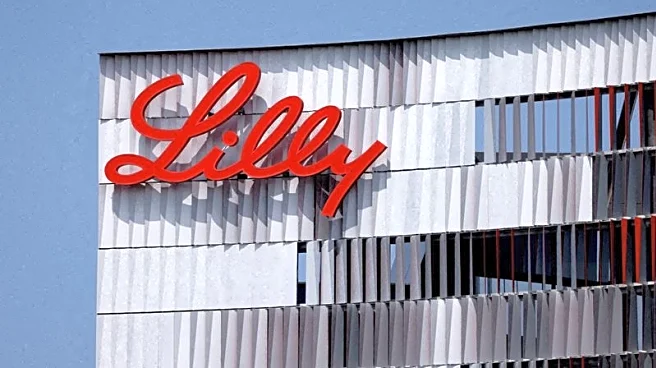(Reuters) -Eli Lilly said on Tuesday it was collaborating with Nvidia to build a supercomputer to help with drug discovery and shorten development cycles, getting medicines to people faster.
Using the supercomputer,
scientists at Lilly will be able to train AI models on millions of experiments to test potential medicines, expanding the scope of drug discovery efforts, the company said.
A number of these proprietary AI models will be available on Lilly TuneLab, a federated artificial-intelligence and machine-learning platform that allows biotech companies access to drug discovery models trained on years of its research data.
The federated model is a privacy-preserving approach that enables biotechs to tap into Lilly's AI models without directly exposing either their or Lilly's proprietary data.
Beyond discovery, Lilly plans to leverage the supercomputer to shorten drug development cycles. Additional applications include manufacturing, medical imaging and enterprise AI agents, Lilly said.
Drug developers are increasingly adopting AI technologies for discovery and safety testing to get faster and cheaper results, in line with the U.S. Food and Drug Administration's push to reduce animal testing in the near future.
"Lilly is shifting from using AI as a tool to embracing it as a scientific collaborator," said Thomas Fuchs, senior vice-president and chief AI officer.
Earlier in the year, Jefferies analysts had pegged AI-related research and development spending to reach between $30 billion and $40 billion by 2040.
The supercomputer, to be owned and operated by Lilly, is an Nvidia DGX SuperPOD with DGX B300 systems.
(Reporting by Sneha S K in Bengaluru; Editing by Pooja Desai)









